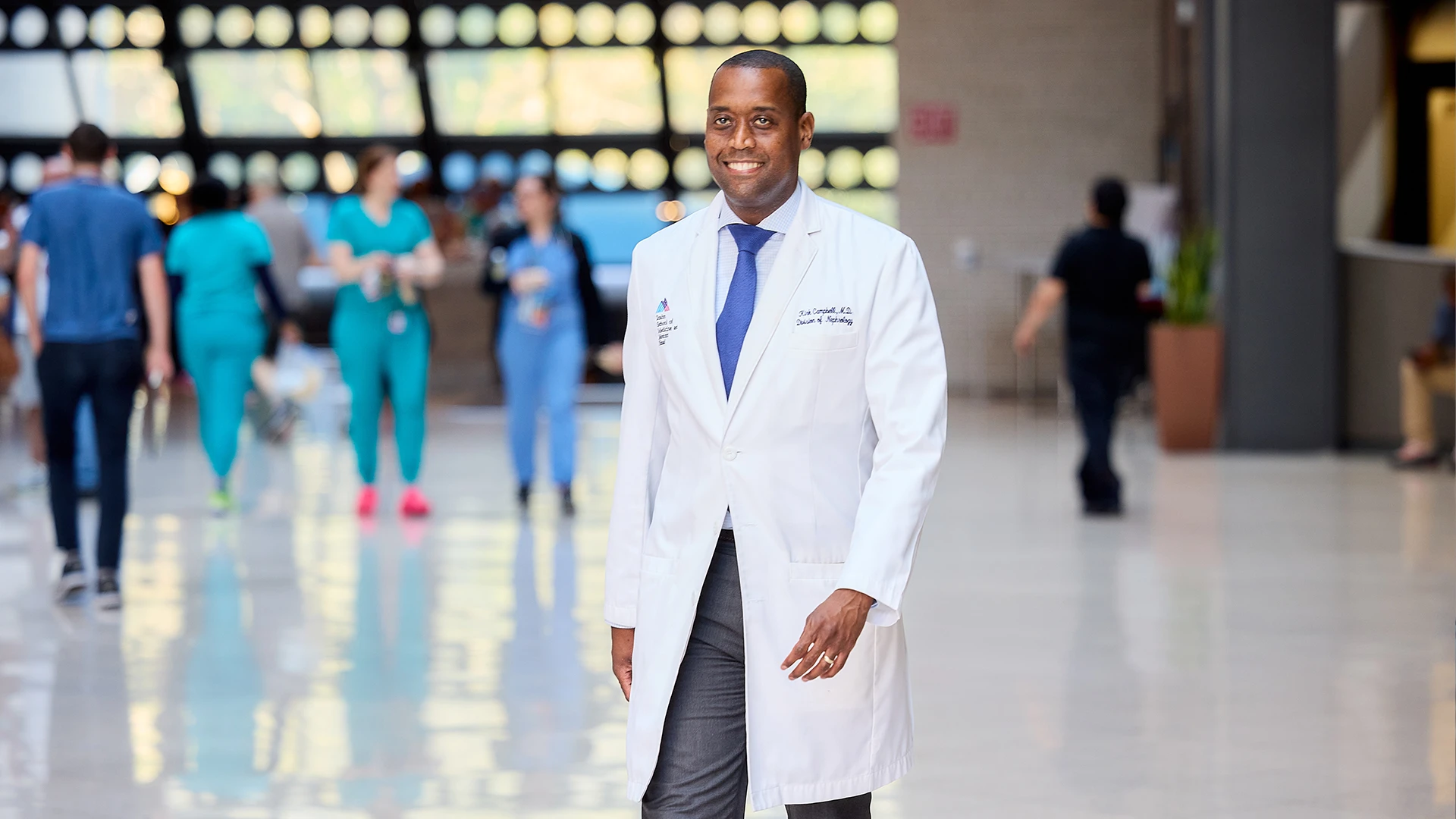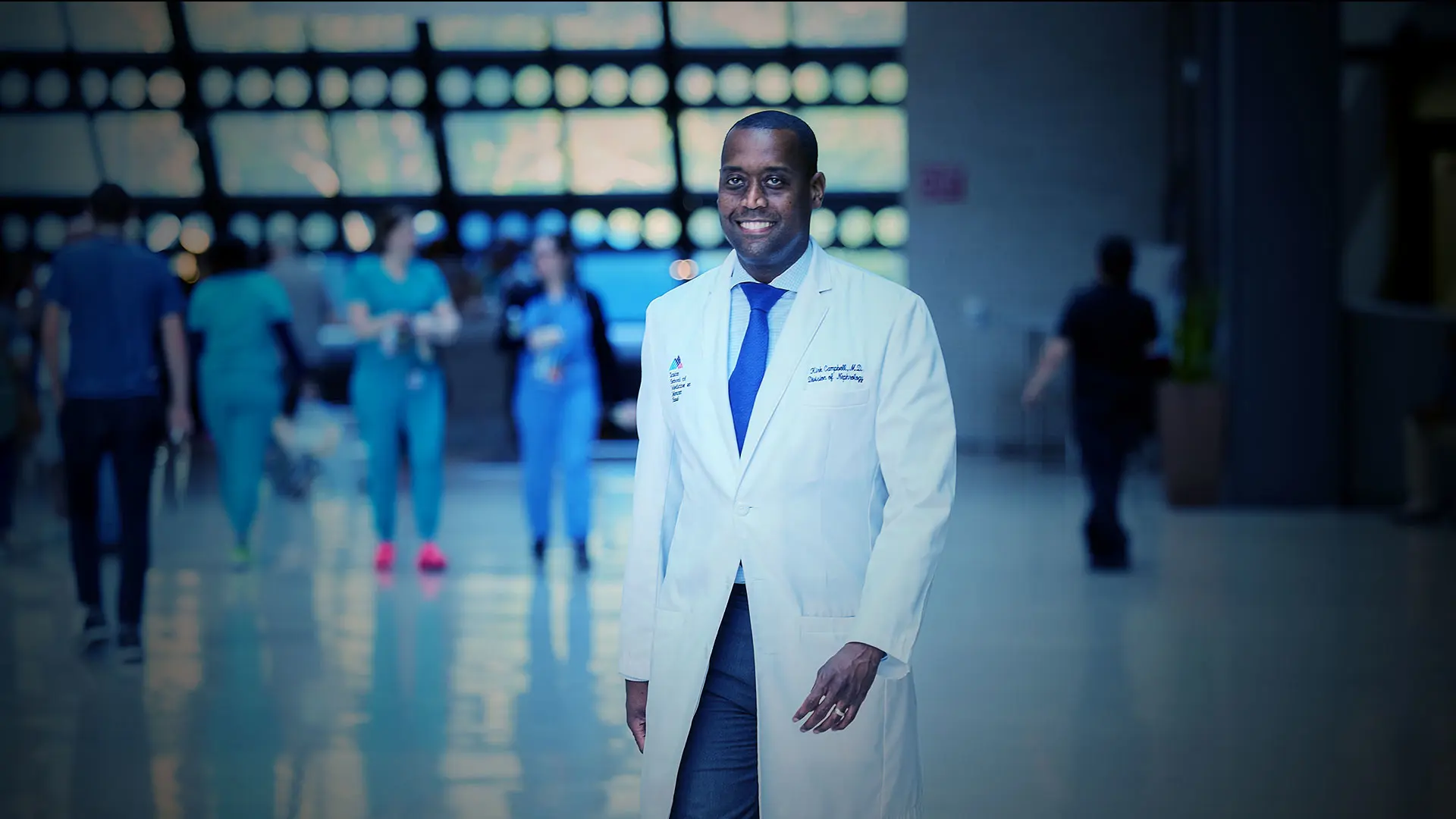The long-range success of the Icahn School of Medicine at Mount Sinai is rooted in its ability to attract the best and brightest students, trainees, and faculty. To that end, no organization within the institution has proven a more valuable ally than the Department of Medicine’s Diversity, Equity, and Inclusion (DEI) program. By taking full advantage of an array of national and homegrown career development initiatives, it has expanded the pipeline of future leaders, particularly from minority and underrepresented communities.
“We’re not just helping to recruit top-flight talent, but leveraging our program to show how we can, over time, change the culture of our institution and promote inclusive excellence,” says Kirk Campbell, MD, Irene and Dr. Arthur M. Fishberg Professor of Medicine and System Vice Chair for Diversity, Equity, and Inclusion in the Department of Medicine. “That means building a diverse workforce by expanding the pool of people interested in doing their training or research here, and supporting them along that pathway through mentoring, networking, and other professional development opportunities.”
The active participation in the National Institutes of Health (NIH)-funded FIRST Program by the Department’s DEI initiative drives home the point. Through FIRST (acronym for Faculty Institutional Recruitment for Sustainable Transformation), Mount Sinai recruits and hires 12 early stage investigators from underrepresented groups for biomedical research. The Department of Medicine is front and center in this expanding program, which is focused on the fields of neuroscience, cancer, infectious disease, and health equity—perfect fits for Mount Sinai since each is a source of strength under its scientific umbrella, as well as a major NIH-funded priority. Specifically, the Department oversees the FIRST Faculty Development Core, which implements the education, training, mentorship, and networking activities of NIH FIRST faculty across the institution. Activities include individualized coaching, research team management guidance, and mentor training.
NIH FIRST is also a fitting complement to Mount Sinai’s own Biomedical Laureates Program, which recruits junior and senior faculty from traditionally underrepresented populations.
“Both programs significantly bolster our ability to attract the highest-caliber faculty from diverse backgrounds,” affirms Dr. Campbell. “They’re also a huge asset to our biomedical research by bringing into our academic environment people with unique perspectives, talents, and research interests.”
Mount Sinai is further pushing the envelope for a more diverse workforce through its ongoing sponsorship of the Student National Medical Association (SNMA). As part of that effort, Icahn Mount Sinai has increased its profile at the annual conferences of both SNMA and Howard University College of Medicine. SNMA is the largest gathering of minority-group medical and premedical students in the United States, and Mount Sinai’s booth at its conference recently drew several hundred prospective applicants for its training programs, with many expressing an interest in internal medicine and its subspecialites.
Icahn Mount Sinai has also made a significant investment in the Visiting Electives Program for Students Underrepresented in Medicine (VEPSUM). This initiative helps feed the school’s recruitment pipeline for residents while giving talented fourth-year medical students from across the country the chance to access excellent four-week elective programs at Icahn Mount Sinai, choosing among a wealth of specialized fields, from emergency and family medicine to neurology, pediatrics, and pathology. The institution has been particularly successful in recruiting VEPSUM students to its Internal Medicine and Med/Peds residency programs.
The DEI program is particularly proud of its work around mentoring, which links underrepresented and disadvantaged trainees with leaders in the Department of Medicine for valuable career guidance.
“We are grooming future faculty by pairing them with leaders who serve as full-fledged sponsors rather than just scholarly project mentors,” emphasizes Dr. Campbell, “which allows our trainees to get the most out of their experience at Mount Sinai. They come to view us as a home for their future academic careers, and that has turned into a major strength for our institution.”

Kirk Campbell, MD, Irene and Dr. Arthur M. Fishberg Professor of Medicine and System Vice Chair for Diversity, Equity, and Inclusion in the Department of Medicine
